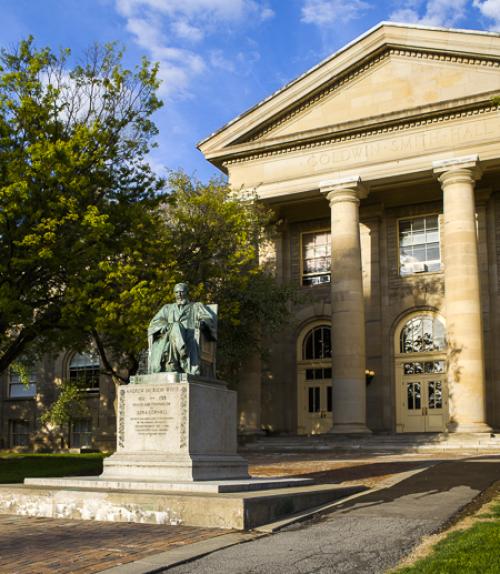PMA Alum Thalia R. Goldstein ‘02, a Psychology Major with a Theatre minor, is the author of a new book called Why Theatre Education Matters: Understanding Its Cognitive, Social, and Emotional Benefits. The book will be published by Teachers College Press on July 26.
During her time at PMA, Thalia performed in The Winter's Tale, directed by Stephen Cole and The Prime of Miss Jean Brodie, directed by David Feldshuh, and was a member of Shadows Dance Troupe. She took some time to speak with us about her time at PMA and her many years of theatre education research:
How did your time at PMA contribute to your thinking about theatre education?
Studying and participating in theatre at Cornell and PMA (which had a different name then) fundamentally shaped how I thought about theatre and performance - from thinking through avant garde and traditional acting styles, thinking about accents and performing versus reading, academic study versus practice, and the role of embodiment. The variety of training I received at Cornell, and the variety of opportunities, really helped in the primary formation of my theory of theatre education as a flexible toolkit for a variety of psychological outcomes.
What inspired you to write Why Theatre Education Matters?
I have been studying the cognitive, social, and emotional outcomes of theatre participation since I started my Ph.D. in 2005. (After graduating Cornell in 2002, I moved to New York to audition, wait tables, and do some brief stints as a professional actor and dancer). I have published more than 70 academic, scholarly articles in psychology on theatre, imagination, and pretend play, but I realized that what I was missing was a core connection to theatre classes as they happen in the schools, in the real world, across the United States. I wanted to go back to the foundation of how teachers are actually teaching, what are the thinking strategies they are trying to get their students to use, engage with, and integrate. So, I applied for and received a grant from the National Endowment for the Arts to go to 5 school districts around the USA and look at what was happening in classrooms. The results of that national large study are presented in Why Theatre Education Matters.
What do you hope readers will take away from this book?
I hope readers will see that theatre provides a huge toolkit that teachers and students can use across contexts, type of student, and goals. Almost everyone can get something out of taking an acting class, and teachers are able to plug in and work with students on skills as varied as imagination, body awareness, metacognition, decision making and trusting yourself. Teachers of theatre have long known its power -- they see it every day in their classes. My hope is that this book will give language and structure to what a theatre class is, and what a theatre class can do.
Thalia R. Goldstein is an associate professor and director of the Applied Developmental Psychology Program at George Mason University. Read more about her work.
Pre-order the book.





